The increasing polarisation of politics in the United States has many consequences that are less visible than the entertainers vying for presidential nominations.
One long term consequence that has infected both Republican and Democratic administrations has been the selection of appointees. More than once able candidates have demurred or declined, while still others have been blocked in the Senate, or raked over the coals there so comprehensively that it becomes impossible subsequently for them to do the job. The Cold War custom of appointing as Secretary of Defense someone the other party, i.e., a Democratic President appoints a Republican as Defense Secretary has become nearly impossible. For a Republican to accept an appointment in a Democratic administration is now Tosca’s kiss. Secretaries of the Treasury were often appointed in the same way. But no more. As were ambassadors to particularly important posts. There was in short a bipartisan approach to some matters regarded as above politics.
It is routine for the fourth or fifth choice to be selected, because choices one through four feared the nominating process.
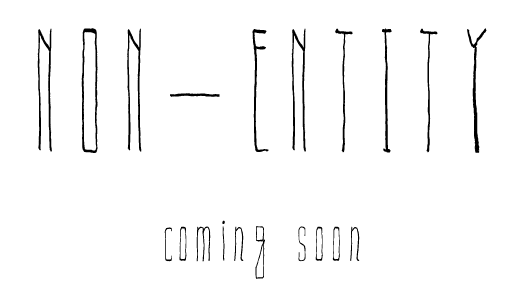
The endless media scrutiny starts long before the name is finally said, ignited by rumours and trial balloons. That however is nothing compared to securing the advice and consent of the Senate. Whereas for several generation the norm was that the President choses, and the Senate advises what it thinks, and then consents.
Not so any more. The threat that the Senate will not consent is palpable. Each side will say the other started it.  The Senate playground.
The Senate playground.
Every Republican Senator knows that to vote for one of President Obama’s nominees will stimulate an attack from the Tea Party, and may lead to a challenge from within the Republican Party. Senator Richard Lugar cooperated with the Obama administration to speed the disarmament of Soviet missiles left in Eastern Europe, to keep them out of the wrong hands. Seemed like a top priority at the time. Still does. But Lugar was a Republican and when he came up for renomination his Republican rival painted him as Satan incarnate for supping with the black devil in White House, and he won. So ended Lugar’s career. By the way the same was true for Democrats during the Bush Administration, but it was less conspicuous.
The unspoken fact is that one president after another has chosen to avoid such a confrontation by selecting a certain kind of candidate. Since all this has come up, again, about the Supreme Court, let us take that example.
Whereas Supreme Court nominees were once leaders in the judiciary with widely quoted opinions, long and closely argued articles in premier law journals, keynote speakers at the most important legal conferences, reputations for analysis….and more. Not so any more.
The paper trail of such outstanding candidates is rich pickings for someone willing to misconstrue, misinterpret, and de-contextualize everything to settle old scores and to embarrass the nominator.

The result is the routine selection of candidates with a small paper trail because they are a smaller targets, not because they are better jurists.
This preference for ever smaller targets is now commonplace. The more obscure the candidate the better. While the Supreme Court is the big ticket in this game, it is not unique.
Cabinet appointments can also be vexed, as plenty of recent examples have shown. That the Senate consented to Hillary Clinton or John Kerry is due to their service as Senator. Like the media, the Senate does not (yet) eat its own.
Category: Op-ed essay
That old tyrant, distance.
One of the sacred text is Australian history is Geoffrey Blainey’s ‘The Tyranny of Distance’ (1966), which made his name and ever after he pontificated on anything and everything until no one (starting with me) listened to him any more. I read it 1974 and not since. The thesis of the book, as I remember, was simple. The great distance of Australia’s English settlements from England made the Europeans in Australia both self-reliant and hostile to, though dependent on, the distant authority because it was unreliable.

The term ‘tyranny of distance’ pops up now and again in the popular media as it did today in a piece on the business pages of Rupert Murdoch’s organ, ‘The Australian.’ There Bernard Salt (‘The Dallas Line,’ 4 February) told readers that Sydney (which is Australia) is more than a plane ride (with current technology) from much of the world. OK, that is certainly true. No airline flies direct, non-stop from Sydney to London or from Sydney to New York City. This, he contends is detrimental to Australia because that is where the money of the world is. OK, that is also true, but what is the detrimental part? That was not articulated, instead the mantra distance is tyranny was cited. One pictures travellers lugging bags of dosh around inside that London-New York nexus unable to change planes, such is the size of dosh bags, in Los Angeles or Dubai.
The news is, and perhaps this is news to some, that money moves around the world in click of the keyboard as the cascade of financial crises around the world has repeatedly shown. Distance does not insulate any country from such financial calamity. That fact is ritually reiterated on the business page of the organ of Murdoch several times a week. Salt describes himself as a futurist on his web site. Think about that.
By the way, the other side of the tyranny of distance that Blainey mentioned was that in the Eighteenth and Nineteenth Centuries distance did insulate Australia from some of the more dopey and ephemeral fads that came and went elsewhere before they made the trip to Australia. No Edsel or Apple Newton made it to these shores. Not from all such fads but some. It also insulated Australian from some infectious disease epidemics. No more. Bad ideas are replicated here within twenty-four hours.
The distance was measured in travel time as much as miles. Blainey wrote about Australia as remote but of course it was not remote to its aborigine in habitants, nor was it far from the South East Asians who regularly visited the northern shores.
The colonial master in the formative period of Australia’s European history was a long way away in both space and time. It might take, at best, six months to travel from Sydney to London. Moreover, it was unsure. Ships turned back; some were even less fortunate. Others jettisoned cargo, like correspondence, in heavy seas and so the letter went unanswered. When word did come through from London it was so late as to be laughable, fertilising the attitude that authority was remote, anonymous, and stupid.
The result was the Australian political culture of the 1970s, one that entwined a dependence on government for nearly everything from the marketing of eggs to trimming of hedges, while disparaging government and all who worked for it as cretins. Australians wore this anti-authoritarianism with pride, automatically against the government even while waiting for the next handout from it. Rather like a teenage boy rebelling against his parents while pocketing the weekly allowance and storming off to a room provided by the detested parents.
For Australia the first breach in the tyranny of distance was the Boeing long distance jets that supplanted ships for the travel of mere mortals in the 1970s. There followed a generation later the digital world which has shaken many of the most solid institutions like newspapers themselves.
Why read Murdoch’s organ when I can click up BBC News, Le Monde, or Deustche Welle? (My personal answer, since I have been asked this, is the local news that will never make it to these outlets, and the reviews, cultural, and entertainment information. And the nonsense that ever fewer, ever more desperate journalist write, which provides unintended – always the best kind – entertainment. And reading them on paper is still more convenient that on screen.)
When the fad for small government was born on the winds of Proposition 13 (that was referendum for the taxpayers’ revolt in California) in 1978, the spores circled the globe and arrived in Australia rather like the cloud of radiation in Neville Shute’s ‘On the Beach,’ Australians happily shrank government. The one example I witnessed firsthand was the higher education division in the Federal Department of Education which shrank from 400 to 40 to 14, probably 4 now. Each successive government wins office on a pledge to cut government spending, and cut they do. This is now a forty year race to eviscerate government.
Of course a lot of things go wrong as the cuts were made, but as one prime minister said, ‘Not our fault.’ End of that story.
Strangely enough though government has vacated many realms from airlines to docks, the tax bill has not decreased but the automatic anti-authority posturing has decreased so some good has come from it. Though poseurs quickly find other posture to affect, it is true to say.
The French Social Model
We do not hear much about the French Social Model (FSM) these days, now do we? For those who tuned in late or tuned out early, in the first decade of the 2000s the French Social Model was often invoked in hushed and respectful tones, even here in the far antipodes.
When students proposed to do theses on the French Social Model, that was the first I had heard of it. They were getting the message elsewhere. Then at conferences there were sessions that included the FSM. When I returned from a conference in Paris at the OECD, the Master of the Universe to whom I then reported asked about the manifestations of the FSM, in the expectation that they were there to see, I guess, in the streets.
Of course the same people who humbled themselves before this mirage of Gallic sagacity were unsparing critics of the Anglo societies in which they lived. Liberalism was a hoax and democracy a sham in the Anglo-Saxon world.
Of course, few pay into the system.
I had to report to my boss that there were no signs of utopia in Paris between the hotel room and La Défense where the OECD talkfest occurred. (The area is called La Défense because the Prussian Army stopped at that point in 1870, preferring to let the French in Paris kill each other in the Commune. In French mythology the Prussians were fought to standstill. There are people who think they stopped the Germans in 1940, too, at the Pyrenees.)
Then in 2006 there were riots in the streets in the Arab and African quarters of Paris and other French cities. Gulp! It went on and on. There is plenty of video on You Tube for those who need a refresher. The complaints and demands were many.
What French Social Model? A repressive police apparatus, the routine deportation of anyone who complained too conspicuously, withdrawal of the license to publish in some cases. Fifty per cent unemployment because no European French would hire a dark skinned person. Automatic failure in school for anyone name Ahmed. Denial of family reunion immigration. Closure of hospitals in the third world parts of Paris. The list goes on.
It had been going on for decades and was as effective in deluding intellectuals seeking an illusion to go with the fumé blanc and brie as the Soviet Union had been in the 1930s with vodka and black bread. Neither the levels nor means of repression in the two cases are comparable. What is comparable is the readiness of some intellectuals to be deluded by a convenient illusion.
The worship of the FSM has gone quiet of late. Not even the election of the Socialist President François Hollande quite revived it. This accountant from the country has seemed to be in over his head as did his predecessor (who is now lining up to be his successor). The cleanskin Socialist Party has stumbled from one crisis to another, several if its own making.
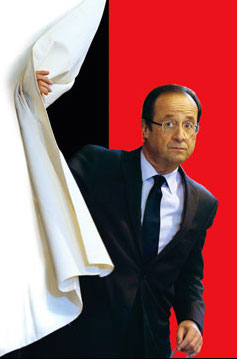 President Hollande
President Hollande
My personal favourite was the Socialist finance minister who pushed for draconian penalties for tax avoidance for all sorts of patriotic and humanitarian reasons. He was undone when his own personal tax avoidance became public knowledge. First he denied the monies existed. Then that the monies were significant. Then that the monies were really his (reaching for his wife as a shield). That it was an oversight. Then…. Then he resigned. Oh, and there was that other financial wizard caught with pants down in New York. Ah, the moral leadership of Socialism. That event thrust Hollande into the leadership.
The point is, for those about to jump to a conclusion, not that the Socialists are any worse than others but that they are no different.
Then in response to terrorists attacks, the Socialist President has declared an open-ended state of emergency. Wow! Imagine if President George W. Bush had done that in 2001! He would have been verbally crucified by the talking-head industry around the world and certainly here in Australia where throwing stones at far-away others is a career. The French attacks were bad, to be sure, but not on the scale of 9/11, but the reaction has been far greater and quicker. Not much of it makes the Australian news in preference to car accidents on the Pacific Highway.
Viewers of TF2 news on SBS see daily reports of continuing police raids, and shoot outs. Dare I call this the Real French Social Model? One suspects that the police have had a long list of villains and now they have the justification to strike at them.
The French Social Model has some adjuncts. The French budget has not be balanced since Valery Giscard d’Estang was president (1974-1981). The debts just keeps on rolling.
One of the biggest drains on the budget is the military establishment which accounts for about 40% of it, which is then used for frequent armed interventions in African, including the Arab countries in North Africa. Those admirers of the French Social Model never pause for long on this prolonged neo-colonialism but one images the outrage if the United States did what the French do. Such are double standards.
 French African Model
French African Model
At any one time France has military units deployed in twenty or more places in Africa. Colonialism or the Gallic Enlightenment?
The Liberal Expectancy
One of the silent assumption of western societies for the last two generations is now undergoing a severe test. Like most assumed truths, it is seldom stated, and certainly not by the talking heads who can never shut up long enough to think.
What assumption is that?
That life in western societies would erode, reduce, and in time eliminate ethnic, tribal, and religious identities and with the passing of these differences, then we can all live together in peace regardless of race, nationality, language. The old conflicts, animosities, hatreds would wash out in the tolerant bath of multiculturalism.
Societies governed by the rationality of the Enlightenment would create the conditions of life in which these superstitions of the past, ethnicity, tribe, and religion, would fall away.
On such assumptions migration was an opportunity not a problem. While migrants will bring in the baggage their ethnic and religious identities with corollary divisions, these will be subdued and written over by their new lives in Western societies, leaving behind their energy, spirit, and creativity.
While the word ‘liberal’ has been as verboten in academic circles as it is in Republican ones, this was one of the core of liberalism. (Strange isn’t it that the self-styled Left of the Academy and the self-styled right of the Republican Party, now represented by Donald Trump, are as one in reviling liberals.)
Another object of revulsion in academic circles for years has been sociologist Daniel P. Moynihan, whose chief sins were calling attention to the implication of social structure and working for Richard Nixon. Just the kind of sell-out to be expected of a liberal! So harrumphed many know-it-alls of my acquaintance. That in both cases Moynihan promoted and acted as a mid-wife to many social programs that benefited millions is irrelevant to the classroom stone-throwers.
Moynihan tried to disabuse us of this liberal expectation that ethnic and religious identities were but flimsy substitutes for the good life and once the good (material) life was in sight, they would retreat into scrapbooks of the past. He argued (‘Beyond the Melting Pot’ [1974], pp 33ff) and he had plenty of evidence at his command in so doing that ethnic identity and religious commitment were essential to the identity of (many, if not most) people and would endure come what may. These identities could withstand the oppression of police states in Eastern Europe, he said, and they could certainly withstand the seductions of Western materialism. A refrigerator would never replace a god. I once saw him more or less drowned out and shouted down at a political science conference advancing this argument. Edifying, not!
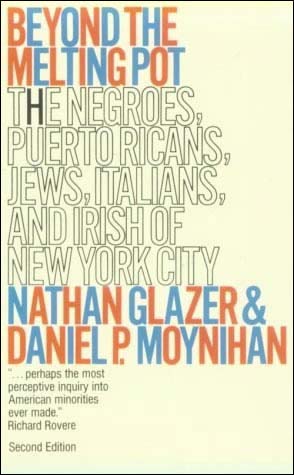
According to this liberal expectancy religion and ethnicity would evaporate in the melting pot of migrant societies. No longer would it be possible to mobilise people by appeals to ethnicity, tribe, or religion. Indeed, one of the silent goals of liberal society was to liberate us from ourselves (our identities as Walloon, Jew, Inuit, Shia, Tatar, Catholic), stripping away these overgrowths and leaving behind the deracinated cosmopolitan.
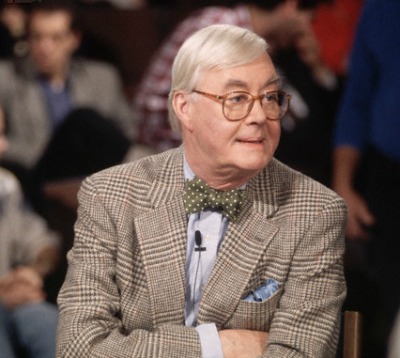 Daniel Pat(rick) Moynihan
Daniel Pat(rick) Moynihan
The resurgence of ethnic nationalism, religion, and tribe in the skeleton of the Soviet Union would come as no surprise to Moynihan, though it did surprise a great many social scientists who are now less conspicuous at conferences. Nor would he be surprised by the continuing response to the appeals of religion everywhere in the world, but most social scientists are baffled by it.
Actually
I gave up saying ‘actually’ five years ago. Everyday it is struggle to break this addiction, but so far so good. I am clean of actually. But it is a day-by-day struggle. Actually is always there, waiting for a moment of weakness. It is always tempting the unwary. However if a nerd like me can do it, so can the reader!

Spare a thought for that overworked word ‘actually.’ This adverb has become a menace.
‘Adverb?’ Yes, it is an adverb which modifies just about anything that comes along, an adjective, another adverb, or a verb.
To illustrate, the word ‘actually’ can modify an adjective in this this phrase ‘the house is actually brown.’ Got it? It is a brown house. ‘Actually’ can modify another adverb as in this phrase ‘the house is actually very brown.’ The house is not just brown but very (‘very’ is also an adverb) brown, actually. It can also modify a noun, to wit, ‘this is actually a house.’ Not just a brown house, but actually a brown house (pedantic note: with the indefinite article the noun ‘house’ becomes — voilà! — a noun phrase). In these correct uses it adds….little, if anything, to the sense of the phrase.
Whew! Those are the legitimate uses of ‘actually.’ Now bear those in mind for one day, and listen to the occasions when it is used. Makes a spreadsheet and see what the results are.
Cannot be bothered to do it? Well, I have, and here is what I have found.
It is used repeatedly, sometimes three or more times in a sentence for emphasis, not to convey information about the degree of brown of a house. The word ‘actually’ actually adds very little to these phrases, actually. Instead the proliferation of actuallys serves other purposes.
The sanctimonious newsreaders on the ABC use it to editorialise by implication on the news, as ‘in the Government has actually taken steps’ on this or that. Surprise! Surprise! Those lazy toads in Canberra have finally done something is the ever-so subtle subtext. Such public displays of addiction can only corrupt the youth.
Comperes of televised quiz shows perform triple actuallys by using it three times in one sentence. Not a single use conveys any information, nor does three. This is more public degeneration of language and by someone who knows all the answers.
Youths overheard on the street outdo that lamentable standard by inserting ‘actually’ every three words. These are the real addicts. No phrase of more than three words can be said without this crutch. These are the victims of the plague of actuallys. No remarks sounds right to these actually-junkies without a sprinkling of superfluous actuallys. That is how actually-addled they are.
What is worse, this plague passes unnoticed. There is no government action. The media, captive to the vested interests, has only blind eyes to turn to this catastrophe. Where are the talking heads when we need them?
The fight has to be at the grassroots. Swear off actually now! Form actually-denier self-help groups. Pedants unite!
Take one Greek crisis and add some Menckenium, then stand back!
Warning! Diatribe ahead.
Reading about the Greek fiscal crisis has been unavoidable, and I have also been reading a biography of H. L. Mencken. What a combination! Menckenium is a dangerous substance in the hands of an amateur like me. What would HL make of this? Polemic and invective, these were his fission and fusion.
He would excoriate all those saps who feel sorry for Greece, which, after all, sold government bonds with sovereign guarantees to European, American, and Australian banks. The money that the banks paid for those bonds went somewhere. Where did it go? Come back little Euros. Come out, come out, wherever you are!
Imagine the outcry at the time if those banks had refused to buy Greek government bonds on the grounds that it was not likely repay the money! Those now wrapped in Greek flags would have screamed for the banks to buy those bonds! Our sovereign guarantees are as good as anyone else’s! The isms would have filled the air: racism, nationalism, stupidism.
There would have been protests on Syntagma Square, demanding that the bonds be bought just like those of…., er, Portugal, Enron, Spain, and Italy.
Those around the world who now inflate their egos by feeling sorry for Greece instead of thinking, would have rallied to the Greek cause. So much for the pathetic claim that predatory lending was somehow at the root. When I read that I laughed louder than at Donald Trump, and that is saying something! (This man brings his own fright-whig. A trouper for sure.)
Who will buy Greek government bonds from now on? Hands up, all those ready to plonk down their life savings!
Then there is the perfectly idiotic claim that the money need not be paid, because after all the creditors are B A N K S.
People are important. Banks are not people. Greeks are people. Therefore Greeks win!
What kind of thinking is this? A kindergarten syllogism? My dog is capable of more complex reasoning than this.
As Angela Merkel has said many times the lending banks were investing pension funds in sovereign bonds, a conservative investment with a low rate of return but very secure; that’s why it is called sovereign debt. That is what most pension funds do, opt for high security at the price of a low rate of return.
Indeed, I have seen the point made in a German newspaper that one of the pension funds exposed to Greek debt has a great many retired Turkish immigrants on its books. It turns out Turks who have worked in Germany have no desire to write off Greek debts. So much for the supposition that banks are inhuman constructions of the aliens among us. (Their are aliens among us, to be sure, and they are hiding in plain sight on Fox News. Check out the mutant little fingers! [You either get it, or you don’t. Explanations are not included.])
Somewhere along the way I noticed the assertion that the Greek government could not repay the debt since Greek voters had voted against it. Talk about a stacked deck! If I could vote against paying the house mortgage, let me at that lever! Ooops, too late, already repaid with interest. I will side with Aristotle on this one, when he says in ‘The Politics’ that a new regime had best honour the debts of the old regime.
Then there are arguments from authority. An old favourite in the classroom. ‘A Nobel Prize winning economist says thus and so….’ and that must be the final word. Hmm. This particular Nobel winner has a track record of one blunder after another since the Prize went to his mouth. He is displacing Linus Pauling’s long-standing record for the most embarrassing gaffes by a Nobel Prize winner.
Finally, the very first claim the Greeks made, which is still coded in the reactions, is that Germans are all Nazis and to hell with them! Nothing Germans say is reported on the BBC or the ABC websites. Facts are unnecessary when reactions are so ready. ‘They can afford to pay, so let them pay.’ Really? This is too imbecilic to merit a response. Well, maybe a little response: that many of the purchases of bonds were laid off to other banks in the United States, Latin America, and yes, even distant Australia. Those who want higher mortgage rates, put those hands up now!
Greek-debt deniers line-up with climate-change deniers, Catholic Church pedophile deniers, Aboriginal-slavey deniers, Holocaust deniers, Shakespeare-wrote-it deniers, Moon-landing deniers, Flat Earthers, and the aliens-did-it mobs.
Where will this all end. I dunno. But I do know that Italy, Spain, and Portugal are waiting in the wings. Any concession Greece gets, they, too, will want it. Retrospective is OK!
Meanwhile, Great Britain has learned for another generation or two the importance of staying out of the Euro(pe).
Full circle comes around to the question of where all those Euros went in the first place. No one seems to be interested in pursuing this matter. I do hope some of them were salted away in Cyprus! Where…’hocus-pocus’ they disappeared when the Russian mafia occupied the island without firing a shot.
Reducing complex matters to simple slogans, and demonizing others, that is civilised debate as we know it.
To the H. L. Mencken in me, this is all a laughing matter, like religion, democracy, and the ABC’s self-righteous efforts at news-reporting, but the last time a Greek government had a financial crisis of its own making, in order to distract attention from that, it started a war with Turkey in Cyprus.
The rowdy scenes in parliament in Athens and the endless protests in Syntagma Square, makes me wonder what the generals are thinking. They are all Maoists at heart: order grows out of the barrel of a gun, said the Great Helmsman, while slaying his countrymen by the millions and becoming a hero to the brain-dead in the West.
I hesitated to write this because I supposed I would earn a torrent of abuse from those rushing for a selfie atop the virtual barricades, but then I realised, none of these people would bother to read it anyway. Just to make sure they did not read it, I did not include any graphics. Why write it then? All bloggers know the answer to that: Because it is there.
Wait! The Oracle speaks! Those who react to my diatribe will:
1.Accuse me of committing the same errors I input to others. This is SAP (Standard Arguing Procedure) practiced by…saps, of course.
2.A second ploy will be to reach some one technical aspects among the myriad and assert this undermines the argument.
3.A variant of two above is to find a typo and claim that it means the whole work is useless. I always include a few typos to draw off these microbes.
4.Of course, all the existing justifications can also have an encore, starting with various false historical analogies only vaguely understood by those looking for support for a position already determined.
The future of Scotland foretold
In a series of novels between 1997 and 2001 that prolific Scots novelist Paul Johnston described an independent Scotland.
 Paul Johnston
Paul Johnston
It is a grim picture he painted. The government in Edinburgh Castle has little influence over the hinterland. The highlands have become a wild and woolly place where few others dare to venture. The Hebrides have not been heard from in years. Whatever oil income there might be there is staying there. The European Union stopped admitting dole-seeking micro-states.
The result is a Scotland that lives off sex tourism for Arabs, Japanese, and Nigerians. Prostitution in a nationalized industry. And on it goes.
Edinburgh Castle is run by intellectuals who follow Plato’s concept of philosopher-kings.
They argue among themselves about the Divided Line and the metaphor of the Sun, leaving the nationalized industry to auxiliaries.
I have taken a few liberties in the summary above to apply it to current circumstances. The books are narrated by an auxiliary who got demoted. The first was:
‘The Body Politic’ (1997)
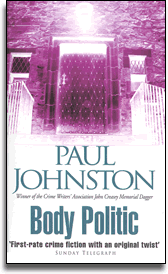
The others are:
‘The Bone Yard’ (1998)
‘The Water of Death’ (1999)
‘The Blood Tree’ (2000)
‘The House of Dust’ (2001)
I found them very amusing and they are recommended as krimies and as dystopias.
The Adventure of the Vice-Chancellor’s Garden
On a fine Saturday in a Sydney mid-winter I went to a public lecture at the University of Sydney in General Lecture Theatre One at 2 pm. This room is as steep as a ski jump and the grey audience, like me, took the steps slow and careful. Knowing the lecturer, I had something I wanted to give him, at the end of the talk, for another project. Accordingly I slowly made my way down to the front. All went well; there were no ominous portents.
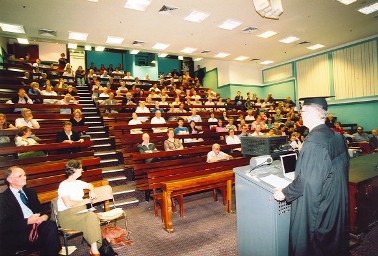 GLT
GLT
I have been to that room many times, and I knew that there was a back exit that avoided ascending all those steep steps. That was my advantage: local knowledge. As the talk drew to a close, I thought I would indeed take the back exit and miss those stairs with my arthritic knee. After a brief word with the lecturer, handing over the poster I had for him, and seeing the slow moving audience taking the stairs, I boldly pushed though the door marked exit at the back and then through a second door into the Vice-Chancellor’s garden, and just for a micro-second I hesitated, should I prop open the door just in case or push on. But if I propped it open, it would stay that way, and I did not want to be responsible for that. I may even have thought, without fully crystalizing it, that it was Saturday and not all doors might be open, but then there was a wedding party in the quadrangle when the lecture started, and the Nicholson Museum was open – I stopped in there to find the location of the lecture on the way there. In other words, everything is open for business. As I said, ‘boldly’ I proceeded, and the exit door slammed shut behind me.
The day was mild and I was in shirt sleeves, but it was July and when the sun goes down the temperature drops quickly from, say, 18C to 10C or less. The Vice-Chancellor’s garden is fully enclosed and gets little sun, as I entered it was already chilly. I hastened to the exit nearest to the mens toilet in the Quandranlge to relieve that need …. only to find it shut and locked. Ooops! Not too worry, I said to myself. I tried the other two doors. Same story. I went back to the door I had exited from the lecture room: Locked, and since it is well away from the lecture hall there was no point in knocking to gain attention. Stuck.
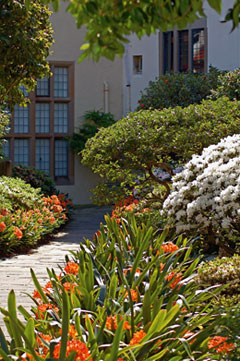
If the doors were locked today, they would stay locked on Sunday, and Monday was a public holiday and so the lockdown would most likely continue. At some point, my wife Kate would miss me and wonder just how long that lecture was. Even so she would not immediately conclude I had trapped myself in the Vice-Chancellor’s Garden, and conjure a key to release me. She was more likely to think in terms of hospitals or alien abductions.
I could break a window, and that might set off an alarm; the windows are all too high to give access to any but a determined thief more agile than I am.
Moreover, I had not brought my window-breaking tyre iron. If I waited for nature to take its course, it would be Tuesday morning when the doors open, about 72 hours to shiver and hunger, perhaps a fitting end, some would say, for me: hypothermia. After all those thoughts, it was time to act.
First things first. There are plenty of bushes in that garden, so I relieved the water pressure and took stock. Only one thing for it, really. I pulled the iPhone from my utility belt, well, just a plain pants’ pocket, and noticed the battery was only 30%, but surely enough for a call. First I used the web to find the University Security Service telephone number, and then I called it, and explained to a seasoned operator my predicament. (I inferred from his quick comprehension of the situation that it has happened before.)
The security operator said someone would be along as soon as possible. Hallelujah, I thought. The battery shrank after the internet use and the telephone call, but it was still only 45 minutes since the end of the lecture; Katie would not yet be wondering where I was. Security called me back twice to tell me someone was coming. My spirits soared. About one hour after the lecture ended, I heard the rattle of many keys and the shaking of a door. It drew me like magnet, and after some more rattling and shaking the door opened and there stood the angel of mercy, Doris, with a mighty big key ring, which she had fetched from the office.
I was effusive in my thanks. She concentrated on documenting the event for the records, putting my shame on file some where in Security.
Considerations of dignity made me hesitate to post this essay, but I decided to do so to thank the Security Service for getting me out.
I took no pictures during the confinement to save the iPhone battery. Web searching did not lead to any pictures portraying the Security Service of the University.
‘I don’t resemble my telephone number!’
Hannah Arendt’s essay on space flight and humanity is a meditation on the impact of technē on us. It was written in 1962 long before smartphones, tablet computers, medical wrist bands, iWatchs, slave cameras, iris identification, bio inserts, and the like. Yet with a few changes it anticipates this world now, more than fifty years since she typed it. (Yes, as readers of biographies know, she typed the first several drafts of all her works herself.)
The changes would de-emphasize space flight with all the gadgetry and gizmos that go with it to protect the person and extend the astronaut’s ability inside the machine of a rocket, lander, or gravity suit. Instead of this kind of technology, it would refer to digital layers that now beguile and enfold us.



To make these digital technologies work, we have to cooperate with them, just as astronauts had to do with their equipment. We have to care for them. We patiently wait for them to boot-up. We keep them in cool environments so that they do not overheat. We feed them electricity, sometimes in carefully regulated doses to keep the batteries charged. We present ourselves to them in ways they can recognize, accept, and respond to whether that it through a keyboard or stylized gestures. We keep them charged up. We keep updating the app software. We discipline ourselves to work with the devices. (No one calls them machines, though that is what they are.)
The more the technology does for us individually, the more willing we are, one-by-one, to meet it halfway, or more.

It all fits into the smartphone which fits into a pocket. Smaller and smaller gets the smartphone, so small soon that…. Use the imagination.
In some places now a person has a single telephone number that incorporates both a fixed landline at home and a mobile number. Once that number is mine, it remains mine even if I move to another home. That number is me … and I am that number. Like it or not, I am my telephone number even if I don’t resemble it.
Imagine the day when that telephone number merges with my Social Security Number, with my tax file number, with my Medicare number, with my VISA card number … That day will come. (Pause to think of all those totalitarian nightmares of dystopian and science fiction writers.) In fact, in this scenario the metadata is me in all important aspects. Publicly no one needs to know my idiosyncrasies, opinions, or needs, all that counts is the relevant bar coded number to scan.
In the face of these temptations, Arendt urges readers to reverse Descartes, to ‘I doubt, therefore, I am.’ How that translates to digital technology, that is the question for today. She did not have to face that question directly since the space technologies that fascinated her, were not consumer goods. There was no iGravity Suit. But as always what she meant was to think, not to react, but to think. Reacting is easy, thinking is hard, slow, and sometimes wrong.
The full integration of these digital technologies will erode, compromise, limit, and, perhaps, destroy our humanity. We will slowly and voluntarily become Borg. I may never resemble my phone number but I am nothing but that number, despite my vanities. I published an earlier piece along these line as ‘The beast that blushed: on modern manners,’ ‘Spectrum, Sydney Morning Herald,’ 30 September 2000, pp. 6-7. (Speaking of vanities.)
No, she did not refer to the ‘Borg,’ bio-mechanical creatures who inhabit the fictional world of ‘Star Trek.’ But they may exemplify her conclusion in some way. Her fascination with technology traces to homo faber in her book ‘The Human Condition’ (1958).
Arthur Eddington once said it was foolish to suppose that he resembled his telephone number, it is said, but I found no text to support it.
The Necktie and the Human Condition: My Story
Class, today’s topic is: The world is divided into two kinds of people: those who wear neckties and those who comment on those who wear neckties. Discuss.
(Once I thought that the world divided into (1) those who divided the world into two kinds of people and (2) those who thought it was more complicated than that. I have since changed my mind. Keep reading to find out why.)
Pursuing the vita scholastica these years toiling in classrooms to persuade students to do the assignments, placating the lords of research grants, and dealing with that alien species which edits academic journals, I wear a necktie to the office most days. Well every weekday and some weekend days at the office, too…….
To read more, cut-and-paste this address into a browser address bar.
http://www.themontrealreview.com/2009/The-Necktie-and-the-Human-Condition.php
Once again the tools for hyperlinking, bolding, and so on are not available.
